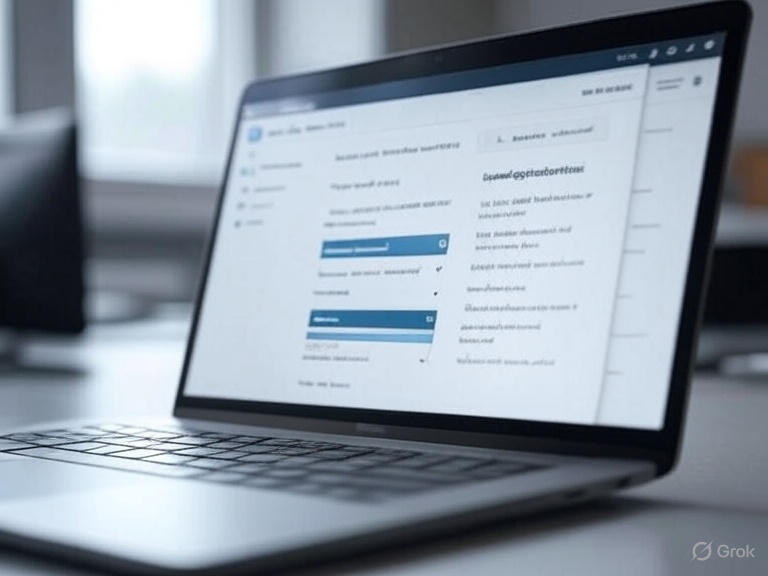Let me ask you something: have you ever clicked on a website, waited a few seconds for it to load, and then thought, “Ugh, forget it,” and bounced? Yep, same here. And guess what? If your WordPress site is even a tiny bit slow, your visitors are probably doing the exact same thing.
Honestly, we live in a world of instant gratification. One-second delays? That’s like waiting for a page to load in the Stone Age. That’s why WordPress speed optimization isn’t just a fancy term tech folks throw around—it’s crucial for your blog, biz, or whatever else you’re rocking online.
Why WordPress Speed Optimization Even Matters
First off, let’s break this down. WordPress is like the cool best friend who lets you do anything—from launching a blog to building a mega e-commerce store. But like any best friend, it needs some TLC to work at full throttle.
Here’s why speed matters:
- User Experience: No one likes a laggy site.
- SEO Rankings: Google loves speed. A slow site can hurt your visibility.
- Conversion Rates: Faster sites = happier users = more sales.
- Mobile Responsiveness: Mobile users expect things now.
By the way, Google did a study and found that 53% of mobile users leave a site that takes longer than 3 seconds to load. THREE. SECONDS.
So, yeah, page speed? Big deal.
My Wake-Up Call: The Slow Site Nightmare
I remember launching my first WordPress blog. I picked a beautiful theme, stuffed it with plugins like a Christmas turkey, and added images in full DSLR glory. It was gorgeous.
But it was also slow. Like, molasses-on-a-winter-morning slow. My bounce rate was climbing faster than my caffeine levels on a Monday morning.
A quick Google PageSpeed Insight check gave me a score of… drumroll… 23.
Cue panic mode.
After some trial, error, crying (kidding… sorta), and tons of research, I learned how to tune it up like a Ferrari on Red Bull. So, let’s dive into those lessons, shall we?
H2: The Core Factors Slowing Down Your WordPress Site
H3: 1. Bulky Themes
Fancy themes with animations and widgets galore? They’re like that extra-large suitcase you drag to the airport—unnecessary weight. Stick to lightweight themes like:
- GeneratePress
- Astra
- Hello Elementor
H3: 2. Plugin Overload
Plugins are like snacks—easy to consume, hard to resist. But too many of them, or badly coded ones, can tank your performance. Pro tip: Audit your plugins regularly and delete the ones you’re not using. Less is more.
H3: 3. Unoptimized Images
Uploading a 5MB image to your blog? Might as well be sending a carrier pigeon. Use tools like:
- TinyPNG
- ShortPixel
- Imagify
Or plugins like Smush to optimize your images without losing quality.
H3: 4. No Caching
Caching is like putting your site on autopilot for returning visitors. It loads pre-saved versions of your site, reducing load time. Best plugins:
- WP Rocket (paid, but worth every rupee)
- W3 Total Cache
- LiteSpeed Cache (if your host supports it)
H3: 5. Cheap Web Hosting
You get what you pay for. Shared hosting might work for tiny sites, but as you grow, consider upgrading to:
- Managed WordPress Hosting (like Kinsta or WP Engine)
- VPS hosting (like Cloudways)
I made the switch from a cheap shared host to SiteGround, and boom—site speed literally doubled.

H2: How to Optimize WordPress Speed Like a Pro
H3: 1. Choose a Fast Theme
We talked about it already, but seriously—pick a theme that’s built for speed. Most page builders are heavy, so if you’re using Elementor or WPBakery, tread lightly.
H3: 2. Install a Caching Plugin
You don’t have to be a tech wizard. Just install one of the plugins I mentioned earlier, tweak a few settings, and let it do its thing.
H3: 3. Minify CSS, JS, and HTML
This is geek-speak for “cleaning up your code.” Caching plugins usually have this option, or you can use:
- Autoptimize
- Asset CleanUp
H3: 4. Use a CDN (Content Delivery Network)
Think of a CDN as a pizza delivery chain. Instead of delivering from one big kitchen (server), it uses nearby branches (servers) to deliver content faster. Popular CDNs:
- Cloudflare (free plan is decent!)
- BunnyCDN
- StackPath
H3: 5. Optimize Your Database
Over time, your WP database gets junked up with revisions, spam comments, and random data. Plugins like:
- WP-Optimize
- Advanced Database Cleaner can clean house and speed things up.
H3: 6. Lazy Load Images & Videos
Instead of loading everything at once (aka a buffet), lazy loading only loads stuff as users scroll. Use:
- a3 Lazy Load
- Lazy Load by WP Rocket
H3: 7. Update Everything
Keep your WordPress core, themes, and plugins updated. It’s not just for speed—it’s for security too.
H2: FAQs About WordPress Speed Optimization
Q: What is a good loading time for a WordPress website?
A: Ideally, under 2 seconds. Anything over 3 seconds and you’re losing visitors.
Q: Can I speed up WordPress without plugins?
A: Technically yes, but unless you’re coding-savvy, plugins are your best friends.
Q: Does switching themes delete my content?
A: Nope! But it may affect your layout and design. Always back up first.
Q: How often should I check my site speed?
A: Monthly checks are ideal. Use tools like GTmetrix, Pingdom, or PageSpeed Insights.
H2: Expert Tips & Pro Hacks
- Use Google Fonts locally instead of fetching from external servers.
- Limit the number of external scripts (chat widgets, ad networks, etc.)
- Defer JavaScript where possible.
- Reduce HTTP requests by combining files.
- Host videos externally (YouTube, Vimeo) instead of directly on your site.
Honestly, once I implemented just half of these, my site score went from 23 to 91 on mobile. That’s like turning a rickshaw into a sports car.
H2: Final Thoughts—Speed Isn’t Optional
If there’s one thing I’ve learned, it’s this: no matter how great your content is, it won’t matter if your site takes forever to load. Your audience won’t stick around to read your genius blog posts or buy your life-changing product.
Speed isn’t just a technical metric—it’s the heartbeat of your online presence.
So whether you’re a blogger, entrepreneur, or digital hustler—don’t sleep on speed.
CTA: Your Turn!
Have you optimized your WordPress site yet? What speed tips worked for you—or what struggles are you facing?
Drop a comment below. Let’s geek out over site speed together!
And hey, if this post helped you, share it with your fellow WordPress warriors. Sharing is caring (and helps speed up someone else’s site!).
